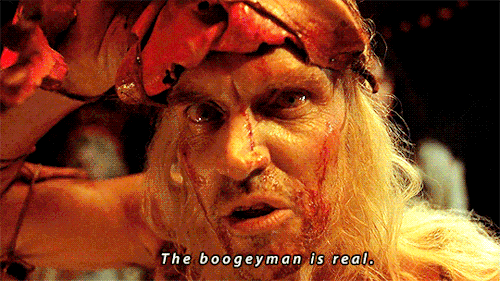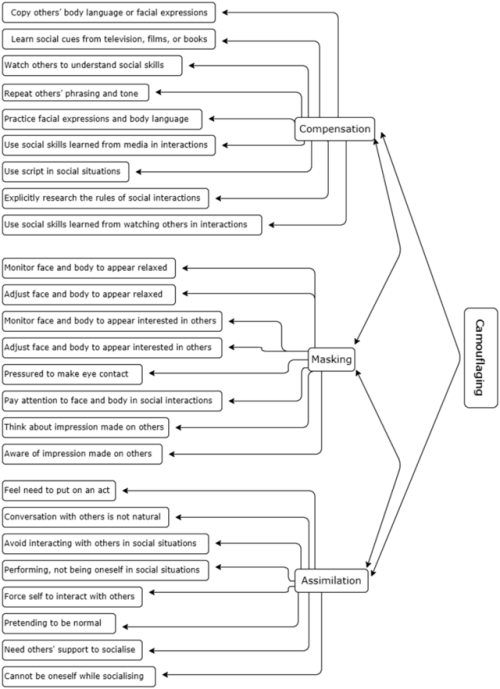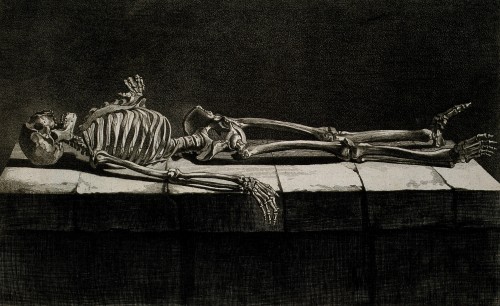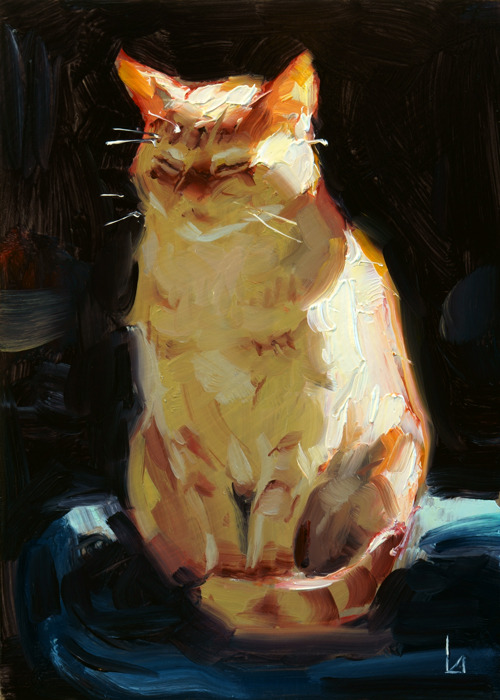113 posts
Latest Posts by muahahahahah - Page 2
“All the effort in the world won’t matter if you’re not inspired.”
— Chuck Palahniuk, Diary

When the fuck did the social model of disability go from "the way society is structured makes disabled people's lives harder than they have to be" to "the only thing wrong with you is capitalism"?????
I refuse to let my major depressive episodes and my schizophrenia take control of my life. I have a lot of fight in me. I am on the right meds and am trying to find some one-on-one and group therapy to go to. I’ve always been a fighter, though, figuratively and literally at times.
I don’t even cry anymore


From what I’ve read and observed, bipolar symptoms exist on a spectrum. Using these charts inspired by @levianta’s graphics about autism, you can visualize the extremity of every symptom you experience. As an example, here is a chart visualizing how i personally experience hypomania:

I've lost my one and only palace
Sometimes I refuse to sleep, because at 3am is the calmest I ever feel. Not that my body isn’t dying of anxiety. But the world is silent. No one expects anything of you. No one in that moment can make you feel terrible. Only you can. And there’s a weird power in that.
Everything seems to be exhausting me. No matter how much sleep I get. Or how much coffee I drink. Or how long I lie down. Something inside me has given up. And I am always so exhausted.






i could never explain why i cut myself









Not everything is fleeting. Some feelings are deep. The fact it isn’t close to me, that I can understand. But I find it sad it isn’t close to you.
Portrait de la jeune fille en feu (2019) // dir. Céline Sciamma








Rest in peace, Billy Drago (1945-2019)
Thank you for bringing the biggest, baddest villain, the Demon of Fear (and Hope), to life for Charmed fans.
The Narcissist: A Fractured Hall of Mirrors
The narcissist is a child masquerading as an adult. At a young age, they stop developing and start maladapting. They adopt facets of society, culture, and loved ones as a basis for their identity. They take note of what attracts adoration, support, and positive attention. They add those traits into a better version of themselves. Eventually, their paper-thin facade is convincing enough. They seem to be charming, generous, friendly, loving, desirable but will manufacture opportunities that create an air of importance for themselves. No matter how well presented, these qualities are not genuine and merely projections that cover a bottomless need for validation and an endless search for security.
FMRI scans irrefutably show there is a lack of cognitive function in the cerebral cortex of the narcissist. There is an inability to model concepts competently. If you catch one copying ideas more complex than their understanding, it will show. They may deviate by trying to sound technical on a more familiar subject to compensate.
There is also a failure to deeply simulate other people’s experiences. They will always snag someone though and appear to be empathic. The other is usually below the narcissist’s experience level or is unwittingly having their own desires played like a tune so they do not see things as they are. Don’t be fooled by a well-practiced face. It is a surface act. “I’ve been there, so I know you.” Anyone who has overcome actual trauma beyond the human drama will see through this. It will leave an awkward taste in the mouth, like fake, sugary icing from a store-bought cake.
The narcissist also has an undeniable need to be right. Being “right” can appear as downright obstinance or it can look like, “I have grown, so now this is how I do things.” What they aren’t saying: My example is the right example. My thoughts are a better perspective. They will haphazardly insert statements that fly in the face of things previously said, trying to dissolve the perception they are presenting a better way, their way, even when the end goal is to sell something!
They will try to manipulate the victim by triggering fears and insecurities in a passive, casual, and even friendly manner. They distract with smoke and mirrors by pretending to bolster the weak self-esteem of their victims. Seeing this can be especially helpful when dealing with a more compelling classic narcissist or a hidden narcissist that is probably unaware of their behavior. Don’t buy the BS. It is not worth the money, time, or commitment. They make promises that claim little effort for a short-term gain, then turn around and tell you to put in the work.
Watch out for repetitive, circular thinking while quickly jumping from one idea to the next without coherency or clear transition. We all live in the age of distraction and many of us show to some extent circular thinking, but the flighty narcissist will seem like they have a peculiar kind of dementia. It is even more extreme. They are just sadly confused about what they should latch onto in their desperate attempt to appeal to others. They will run with anything that uplifts and reaffirms the shaky ground their identity stands on.
If the narcissist believes their idea of self is affronted or challenged (even if one has done nothing at all) they will obsessively fixate on that person. The fixation can be as strong as the obsession with perfecting their image. They will do this by stalking, mimicking, or finding ways to oppose the insubstantial pieces they can target. They may even incomprehensibly try to both copy and insult the assumed offender simultaneously.
One must resist the urge to engage with or react to the tactics of both the classic and covert narcissists. If one falls prey, then they have succeeded, for they can play the victim, the innocent, or the hypersensitive sweetheart who understandably had a bad moment. Don’t feed their ego. Be aware of the poor fools who are wrapped around their fingers, ready to fight their battles. The takeaway: Stay away.
The most dangerous truth a narcissist can never personally accept is that they are a fractured mirror. They will mirror whatever reflects best, no matter how distorted. Every story they spin to convince themselves that isn’t so only further pushes them away from integration. Everything they uphold about being authentic, they will tragically tell themselves over and over until the bitter end.
These lost souls will always be compelled to defend, will always be fine-tuning a flawless persona, one they think is beyond reproach. Yet they continue to yearn for an unattainable assurance they are someone, that they are real. As long as the narcissist personality exists the individual will never know the depths below.
Habits, Tics, Stims, Compulsions, and Behaviors
You are tapping your foot. Someone asks you to stop. You do. You feel no ill effects aside from maybe disappointment at having to stop. You tap your foot often. This is a habit.
You are tapping your foot, whether you want to or not. Someone asks you to stop. You can’t. If you try to it feels like holding in a sneeze and the pressure builds up. It might come out in a different, even less controllable action. This is a tic.
You are tapping your foot. Someone asks you to stop. You do, but immediately feel worse physically or emotionally. It was a way for you to express yourself and how you feel. You may feel pressure. This is a stim.
You are tapping your foot. Someone asks you to stop. You can’t, because if you do something bad will happen, possibly some specific bad thing. You know it’s irrational, but not doing it gives you anxiety. This is a compulsion.
You are tapping your foot. Someone asks you to stop. You can’t, because if you do this specific bad thing will happen. It is not irrational to you, although it is to others. This is an erratic/disorganized behavior.



Coraline (2009), dir. Henry Selick.
“The ‘O’ in ‘Welcome home’ on the cake has double loops in it. According to Graphology, the double looped lowercase o implies that the person writing it is a liar.”



House Of 1000 Corpses (2003)
SzPD: OVERT vs. COVERT
Salman Akhtar (a psychiatrist) provided a comprehensive phenomenological profile of Schizoid Personality Disorder in which classic and contemporary descriptive views are synthesized with psychoanalytic observations. This profile is summarized below and lists clinical features that involve six areas of psychosocial functioning and are organized by “overt” and “covert” manifestations. “Overt” and “covert” are not meant as different subtypes but as traits that may be present simultaneously within one single individual.
Self-concept - OVERT
compliant
stoic
noncompetitive
self-sufficient
lacking assertiveness
feeling inferior and an outsider in life
Self-concept – COVERT
cynical
inauthentic
depersonalized
alternately feeling empty, robot-like, and full of omnipotent, vengeful fantasies
hidden grandiosity
Interpersonal relations – OVERT
withdrawn
aloof
have few close friends
impervious to others’ emotions
afraid of intimacy
Interpersonal relations – COVERT
exquisitely sensitive [disambiguation needed]
deeply curious about others
hungry for love
envious of others’ spontaneity
intensely needy of involvement with others
capable of excitement with carefully selected intimates
Social adaptation – OVERT
prefer solitary occupational and recreational activities
marginal or eclectically sociable in groups
vulnerable to esoteric movements owing to a strong need to belong
tend to be lazy and indolent
Social adaptation – COVERT
lack clarity of goals
weak ethnic affiliation
usually capable of steady work
quite creative and may make unique and original contributions
capable of passionate endurance in certain spheres of interest
Love and sexuality – OVERT
asexual, sometimes celibate
free of romantic interests
averse to sexual gossip and innuendo
Love and sexuality – COVERT
secret voyeuristic interests
vulnerable to erotomania
tendency towards compulsive perversions
Ethics, standards and ideals – OVERT
idiosyncratic moral and political beliefs
tendency towards spiritual, mystical and para-psychological interests
Ethics, standards and ideals – COVERT
moral unevenness
occasionally strikingly amoral and vulnerable to odd crimes, at other times altruistically self-sacrificing
Cognitive style – OVERT
absent-minded
engrossed in fantasy
vague and stilted speech
alternations between eloquence and inarticulateness
Cognitive style – COVERT
autistic thinking
fluctuations between sharp contact with external reality and hyperreflectiveness about the self
autocentric use of language

Witches’ Sabbath / The Great He-Goat, 1823, Francisco Goya
Medium: oil,canvas



The Miseducation of Cameron Post (Desiree Akhavan, 2018)




I still catch myself thinking things like “but at least I wasn’t homeless” and “at least I wasn’t parentless” when I think about my abusive childhood. But then there’s voice inside of my head, reminding me.
“Hey, you lived terrified of being thrown out on the street and left to starve to death. You were reminded almost every day that you are going to be abandoned and left for dead unless you do everything you’re told, and be useful enough to keep alive. Remember when you were 14 and you spend entire day painting and re-painting a wooden garage, and you were crying entire time? Nobody even looked at you. You weren’t allowed to stop, and you weren’t allowed to cry out loud. It was just silent tears all day. You had to do it if you wanted to live. And it was like that every day, no matter if you were sick, wounded, upset, dying inside - you had to work if you wanted to deserve to eat. You watched this family be family without you, how many times were you crying silently just listening them all laugh in the living room, having a good time, and you couldn’t join because they would all start insulting you and glaring at you if you did? You watched your mom hug your siblings and she wouldn’t hug you. You were convinced day after day that you were lazy, worthless, vermin and a burden on everyone around you. You were beaten, slapped, threatened, screamed at, insulted, attacked and picked up by your hair when someone wanted to take their anger out on you. You were scared of getting killed by violence, because you knew if they killed you, they would all say you deserved it, and were asking for it. Like they always did after hurting you. You were denied privacy, resources, safety and freedom. You were sexually abused at the age of 7. Nobody cared. You started having panic attacks at the age of 16. Nobody cared. They all knew you were cutting yourself by the time you went to high school. They laughed at you. And the worst is, you cared. You cared about all of them. You would never do anything to hurt or damage any of them. You were there for anything they needed. You were betrayed and kept in this state by those you loved. Your heart was so heavy - and still is, you feel physical pain in it for the most of time. You have ptsd now. You can’t work. You can’t even look at yourself and examine the damage done to you because it’s too much of a shock and you can’t endure the pain of knowing it. I don’t think it actually gets that much worse than that. You don’t have to compare it to anything.”
Into the Spider-Verse is, undoubtedly, a Miles Morales movie, yet I can’t help but feel sympathy for Peter B. Parker and relate to him more than to Miles as the twenty something kid that I am. The moral of the story the movie presents is there, and it’s Miles’ moral, but Peter’s character story and arc is also there and it’s maybe sadder than you think in that funny, light movie, but so important to me.
Gen Z and Millennials can definitely relate to the older Peter, even if he’s 38 years old. He’s tired, he’s done, he just wants some rest, he resents his responsibilities, he’s screwed up more times than he remembers, he’s not much of a fan of kids, he doesn’t even care about proper spelling (”There’s always a bypass key, a virus key, a who-cares key, I can never remember so I just call it a goober.”). Honestly, mood. And I’m only in college, people.
See, there is this moment in the movie that is supposed to serve as a comedic moment: Miles tries to say “with great power comes great responsibility” but Peter abruptly cuts him off, almost screaming “don’t you dare finish that sentence, don’t do it!”. Then he follows with “I’m sick of it.” And then he says “My advice? Go back to being a regular kid.”
Peter still tries to live by the words of his uncle, but where at the beginning they were his motivation and something that gave his life meaning, now they’re a resented responsibility drawing a circle he can’t break out from. He’s been slowly losing his passion for being Spider-Man, just putting the suit on because he feels like he has to. He even says that Mary Jane scared him by her wanting kids. He’s scared to move on and to be something else, something more than just Spider-Man. There’s also the reason of him not wanting to see his kid go what he’s gone through, and that being a parentless family, but that’s half of the problem.
When you get a close up

you can see the determination on his face, but there are also a broken nose, bags under his eyes, the hair he doesn’t even care to pull back, the gray skin, the scruff, a few wrinkles even, and… sadness. He’s genuinely sad, he’s depressed, and so done with everything. But he’s not one to quit. He’s still living by Ben’s words.
Those words have become his curse because he lost his way somewhere along his life, because he overdid it with understanding the words. It’s like with Titanic where they were supposed to have women on the lifeboats first, and then men, but they just let the women step into the lifeboats because they didn’t understand the command. That being said, instead of being just a motivation and inspiration, Ben’s words became something he can’t let go of, almost like a drug, like a sick addiction, and maybe he does see it, maybe he doesn’t, but it’s there, and it’s determining his life. He can’t help but loathe them. He doesn’t allow himself to be something else but these words. He is those words, nothing else.
There’s a moment in the movie where Aunt May tells him, “you look tired.” And he genuinely replies, “I am tired.” I may or may not have shed a tear, because that was the perfect reflection of how he felt and how lost he was. He was tired of being who he was and still pursued that path. Sounds relatable? Because it is.
Things happen, movie ends, and while Miles’ moral of the story is that everyone can wear a mask and nobody’s ever ready to be a hero, that they just grow into it, and all you need is that little spark, Peter B. Parker learns that the words he’s lived by aren’t what should make his life sad, broken, and resentful. He learns that he’s just a person like any other, not just words. Thanks to the little journey with Miles he learns over again that being Spider-Man is supposed to be fun and a responsibility among other things, not only a responsibility determining his day-to-day life 24/7. Peter learns that being a hero does require a lot of sacrifice, but it’s just a part of who he is, and that he has the right to be happy.
I don’t know what you got out of the movie, but in my opinion, Peter B. Parker teaches you in this movie that you have the right to be happy. You have the right to live a good life despite one or more responsibilities that set up your daily basis, whether it’s a job or a problem you’ve had for a while. You can still be happy.
I stepped out of the movie theater thinking, “goddammit, why don’t people remember that you can still be happy nowadays? Why do people determine their lives by only the bad things? Why are we like this? Why am I like this?” And honestly? Despite all the bullsh*t, all the crap, and all the small or big problems, I deserve some happiness, man. And so do you.

[ID: Image depicting three types of camouflaging - compensation, masking, and assimilation. Under compensation it lists - coping others’ body language and facial expressions, learn social cues from television/films/or books, watch others to understand social skills, repeat others’ phrasing and tone, practice facial expressions and body language, use social skills learned from media in interactions, use script in social situations, explicitly research the rules of social interactions, and use social skills learned from watching others in interactions. Under masking it lists - monitor face and body to appear relaxed, adjust face and body to appear relaxed, monitor face and body to appear interested in others, adjust face and body to appear interested in others, pressured to make eye contact, pay attention to face and body in social interactions, think about impression made on others, and aware of impression made on others. Under assimilation it lists - feel need to put on an act, conversation with others is not nature, avoid interacting with others in social situations, performing/not being oneself in social situations, force self to interact with others, pretending to be normal, need others’ support to socialize, and cannot be oneself while socializing./]
Image provided from https://link.springer.com/article/10.1007%2Fs10803-018-3792-6. Entitled “Social Camouflaging Model.”
Goblincore really is ADHD culture… Yelling… Being impulsive… Liking shiny… Wanting to run away into the forest and shirk all earthly responsibilities… It’s meant to be…


true.

Nouveau recueil d’osteologie et de myologie (1779 - Engraving) - Jacques Gamelin
The biggest misunderstood thing about BPD
We can feel suicidal/have suicidal ideation and be normal the next day. It’s the nature of the disorder. I’m not being manipulative - I really do feel these feelings.

Sun Cat. 7 x 5 inches, oil on hardboard.
Thoughts on Edmund Kemper?
also one of my fav cases! this is one of my all time fav true crime quotes:
horribly insecure and would probably be an incel if he were at his age when he went on his killing spree today; extremely arrogant and narcissistic, intelligent and manipulative at the same time (i cant believe he was engaged once)
conducted some of the best true crime interviews of all time, and was extremely insightful even if he gives himself too much credit and loves to hear himself talk, they’re still prolific interviews and he managed to get profilers to like him and i think he really wanted to be liked
awful childhood with an abusive mother who had serious mental illness; rejection from his father in adolescence severely affected his emotional state, and he carried his admiration for his father into his adulthood but never received the love he should’ve gotten from either parent
it’s crazy that clarnell predicted that he would kill his grandparents
plagued with homicidal and sexually sadistic thoughts as a kid from an extremely young age
his crimes seem pretty easy to understand to me, a lot of it had to do with his mother as well as everything mentioned above but they’re still fascinating imo
i think him turning himself in wasn’t for nobility like he claims, but moreso because he knew hed eventually get cornered
the mutilation and his obsession with having trophies of his victims is sickening and really disturbing
he reminds me of my ex and his mother actually, she has bpd and was abusive to both me and my ex,,,, and he was abusive to me (and sometimes her) and it was awful staying there. i wont be surprised if he finally snaps one day and kills her tbh forreal
he talked like an old man too and called his homicidal tendencies his “little zapples”
too tall for his own good!!